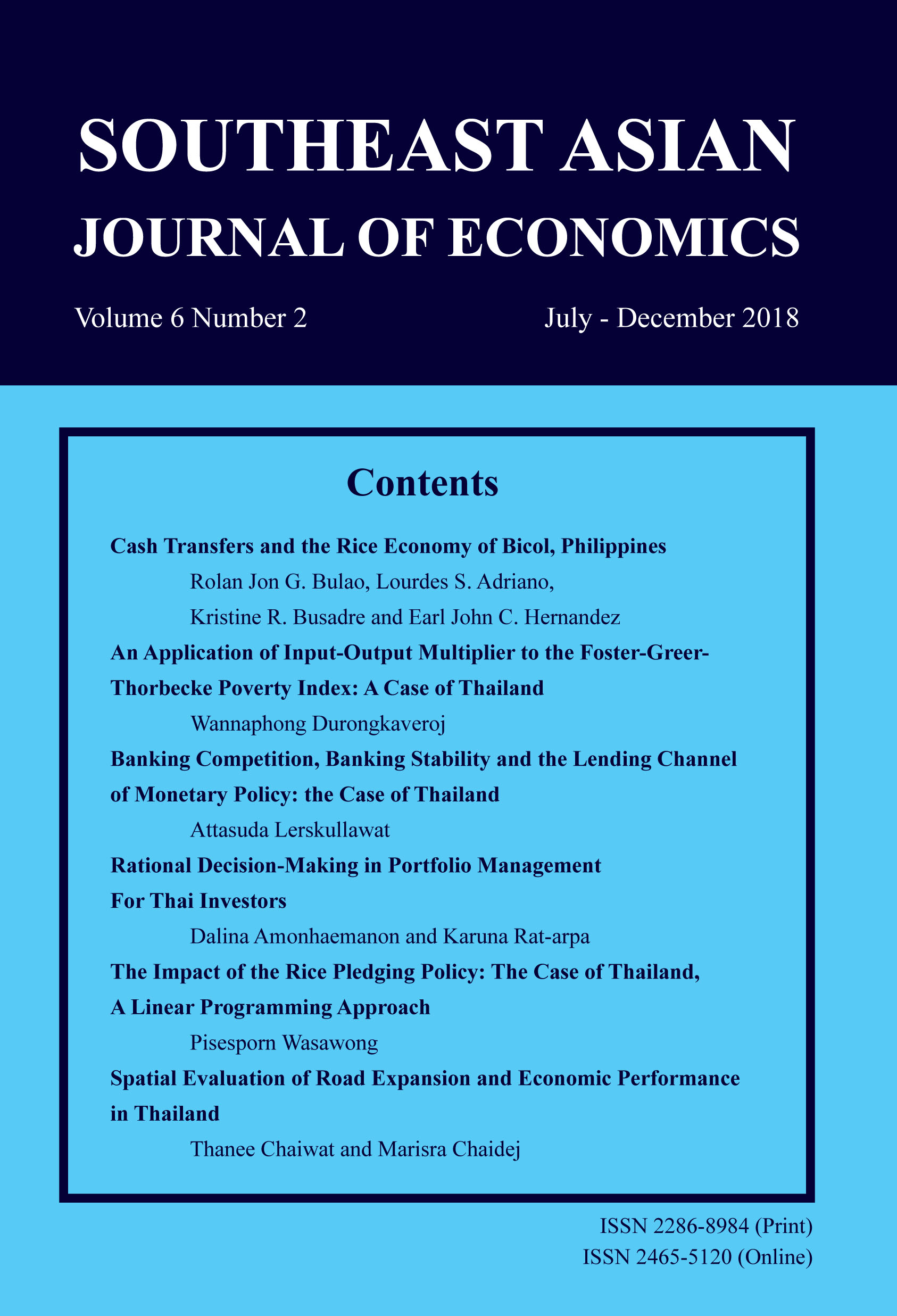Fiscal Policy in Response to Climate Variability in Thailand
Keywords:
Climate Variability, Discretionary Fiscal Policy, Budget FormulationAbstract
This study employed the regression-based measure of discretionary changes in fiscal policy to examine fiscal spending in response to economic cycles and non-economic shocks in Thailand, particularly in climate variability. In response to economic cycles, the discretionary component of fiscal policy within the Thai government has generally been pro-cyclical. However, the overall effects of fiscal responses in terms of discretionary and non-discretionary government budgetary expenditures show a neutral stance. At the disaggregated ministry-level, five out of six ministries selected in the study illustrate a neutral fiscal spending behaviour. The effects of climate variability are mostly silent on the use of fiscal policy discretion and on total government budget expenditures, but have some impacts on budget formulation at the line-ministry level. However, the associations are often not indicative, and may even oppose expectations, of the government allocating higher budget appropriation in cases of increasing climate variability.
Downloads
How to Cite
Issue
Section
License
The submission of a manuscript implies that the paper is an original work and has not been published elsewhere. The author(s) authorize the journal to reproduce or distribute the paper in printed or other electronic forms.







